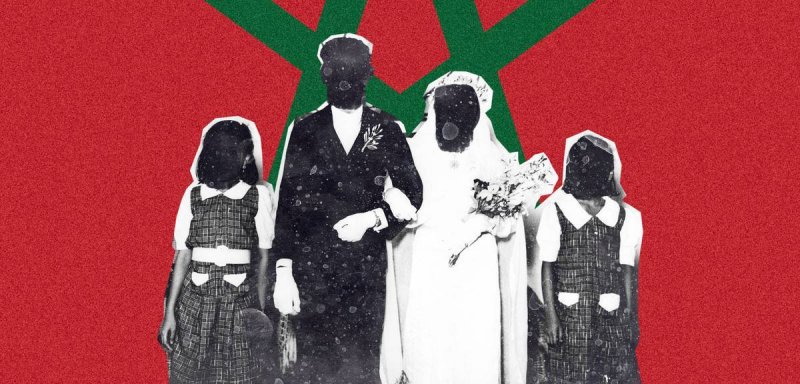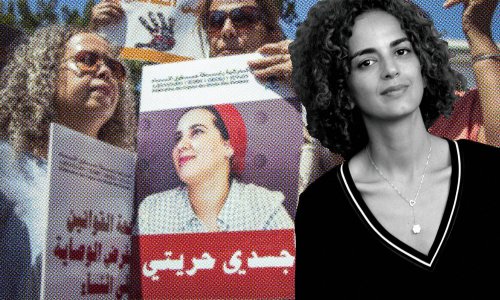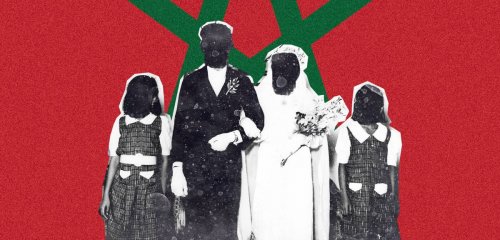Their tender age doesn't allow them much more than playing in amusement parks, learning in schools and being amongst their families, but this isn't the case in Morocco – a country which has witnessed an increasing rate of underage marriages; a reality which has prompted international organizations to warn of the ramifications of the practice, declaring that it is a "major obstacle to the country's development" and noting that this form of "marriage" causes serious problems to the physical and mental health of children.
In recent years, Morocco has witnessed a number of initiatives against the marriage of minors, including one whereby underage girls wore shirts with the phrase "I am a child, not a wife" written on their backs.
To commemorate the International Day of the Child on 11 October, the subject of underage marriage has once again come to the fore in Morocco, following an initiative launched by United Nations (UN) agencies to combat this form of marriage in the kingdom, calling for the empowerment of Moroccan girls and providing an opportunity to allow them to prove their abilities and achieve their aspirations, under the slogan "A girl's strength is embodied in being a spontaneous and overwhelming power."
The initiative, which was supported by the United Nations Population Fund, UNICEF and UN Women, called for a collective adherence by the Moroccan government, parliament and media outlets to the goal of ending child marriage in the country.
International agencies warned that "Child marriage is a violation of human rights and a practice that threatens the interests and well-being of the child, according to international standards of human rights to which Morocco is an adherent" – while also pointing out that despite this, "child marriage remains widespread and primarily affects girls."
The document of the initiative was published in local media outlets also pointed to the importance of initiatives by the Attorney General's office, the Justice Ministry, the National Council for Human Rights and civil society organizations for the ending of child marriage in the country, in order to allow every child to enjoy their full rights without any impediments.
According to the document, official numbers show an increase in child marriage applications from 30,312 in 2006 to 32,104 in 2018. Furthermore, between 2011 and 2018, 85% of child marriage requests were approved.
Accordingly, international agencies also declared that "What is concerning is that the official statistics of the justice ministry only take into account legal requests, while unofficial child marriages do not appear in any official statistics."
Their tender age doesn't allow them much more than playing in amusement parks, learning in schools and being amongst their families, but this isn't the case for Morocco’s child brides.
Official numbers show an increase in child marriage applications from 30,312 in 2006 to 32,104 in 2018. Furthermore, between 2011 and 2018, 85% of child marriage requests were approved.
The initiative proceeded to warn of the phenomenon, pointing out that child marriage threatens the "life of girls and their health, and constrains their future possibilities" – additionally noting that studies and research have shown that the practice is "damaging on several levels, because it constitutes a specific factor in the spread of inter-generational poverty."
The initiative document also cited other damaging effects of child marriage, most prominently "the inability of young girls to express that they don't want to have sexual relations and their inability to choose their preferred contraceptive, which exposes them to the risk of unwanted pregnancies, unsafe abortions, sexually-transmitted diseases and the death of mothers and newborns – as well as violence by husbands and the physical and psychological damage which it entails."
International agencies in Morocco also warned that "child marriage and early pregnancies force millions of girls to leave their education, and subsequently helps to marginalize them and force them to abandon their life plans – largely limiting the scope of their contribution to the creation of national wealth."
In an attempt to combat this phenomenon, the initiative called on all Moroccan parties and specific entities – the government, constitutional institutions, media and civil society – to adhere collectively to efforts to end child marriage.
According to the initiative, this commitment is based on encouraging reviews of legislation and national policies in order to protect children and defend them, especially young girls, and to ensure that children are enrolled in educational, health and protective programs – including high-quality social protection – in addition to the dissemination of information to families, local societies and leaders to encourage them to invest in young girls, as well as ensuring the availability of means of expression for young married girls (or those targeted for marriage) to enable them to express their opinions, choose their options and reinforce their education, and to offer economic alternatives for those who are most vulnerable. Furthermore, the agencies called for the production and utilization of data and reliable information which can be utilized in informing public policies and programs aimed at teenage girls.
Calls For Prohibiting Child Marriages
Two Moroccan civil society organizations, "SimSim for Citizen Participation" and the "Voice of the Amazigh woman" have come forward with a new legal proposal this year to attempt to limit child marriage, affirming that legislative intervention has become a "pressing necessity in order to put in place clear legal texts and stipulations to limit the phenomenon and to return the natural balance to the institution of marriage."
Furthermore, a recent study by the "Rights and Justice" organization revealed that the phenomenon of child marriage has much to do with the "absence of activities" – notably, the unemployment of fathers and brothers – adding that the phenomenon is widespread in cities as well as in the countryside, and that one of the main reasons for its proliferation is "the absence of a clear legal text that prohibits the marriage of minors."
Raseef22 is a not for profit entity. Our focus is on quality journalism. Every contribution to the NasRaseef membership goes directly towards journalism production. We stand independent, not accepting corporate sponsorships, sponsored content or political funding.
Support our mission to keep Raseef22 available to all readers by clicking here!
Interested in writing with us? Check our pitch process here!









